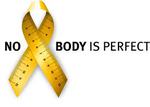Issues
What are some of the issues Depression Eating Disorders Self Esteem Panic Attacks Anxiety Bereavement Anger Management Stress Sexuality Relationship Breakdown Loss of Direction Self Harm Loss of Employment Relationship Problems Bullying Dyslexia/Learning difficulties Work Related IssuesTherapies
Cognitive Behavioural Therapy (CBT) Bereavement Counselling Individual one to one Counselling and Psychotherapy Person Centre Therapy Humanistic Therapy Reality Therapy/Choice TheoryIssues » Eating Disorders

Eating disorder refers to a complex, potentially life-threatening condition, characterised by a disturbances in eating behaviours. You may have been using an eating disorders as a way of coping with emotional distress, or as a symptom of underlying issues. Eating disorders are not primarily about food, you can recover from eating disorders and they can affect anyone.
Eating Disordered behaviours can be a variety of things including :
- Self-starvation - by fasting or food restriction
- Purging, self-induced vomiting, over-exercising, or laxative abuse
- Bingeing - by consuming quantities of food beyond what the body needs to satisfy hunger
An eating disorder can be very destructive, both physically and emotionally, and you could get trapped into the destructive cycle of an eating disorder without knowing how to cope.
An eating disorder is not just about food and weight, but also about a your sense of who you are. Treatment of an eating disorder will might require both physical and the emotional part of you.
An eating disorder may have an impact on the family and friends of the person who is struggling with disordered eating. There are a number of eating disorders including Anorexia, Bulima, Binge eating disorder among others.
You may have suffered from:
- have dieted
- have low self-esteem– though this may not be obvious, as people who develop eating disorders are often ‘high achievers’
- show a marked over-concern with body shape, weight and size, and an obsession with food
- see thinness as a magical solution to problems, while weight gain is feared
- have difficulty identifying and expressing their real needs
- view their body as larger than it actually is
- have problems around control
- find it hard to talk about their feelings and to deal with conflict
- be depressed and may become isolated
- experience mood swings
Through Counselling and Psychotherapy
- You would tackle the underlying emotional problems
- Challenging the beliefs and attitudes sustaining the behaviour
- You could explore your relationships and your relationship with food


